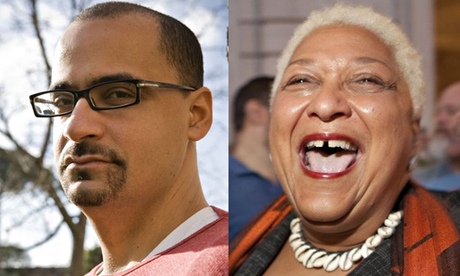
This week saw the appearance of BBC Culture’s survey of the best 20 novels of the still-teenaged 21st century. But I’ve also been immersing myself in another recent addition to the seemingly endless body of literary lists – and one that’s far more personally profitable. Viz my immersion in myself in Flavorwire’s list of 50 Books Guaranteed to Make You More Interesting. Fifty! Talk about bang for your buck. And if you read all of them, imagine how interesting you would be! People would have to move away from you at parties in case they exploded with excitement.
The pure narcissism and annoying irresistibility of its title notwithstanding, the Flavorwire 50 is a pretty enticing list and, in fairness, obviously compiled and written, by Emily Temple, with tongue in cheek. “Everybody out there could stand to be a little more interesting,” she begins. “Yes, even you, trilingual lion-tamer astrophysicist reader.” Her recommendations range widely, from King Lear to Marjane Satrapi’s Persepolis, from The Rings of Saturn by WG Sebald to The American Way of Death Revisited by Jessica Mitford. A Brief History of Time is immediately followed by Jewelle Gomez’s The Gilda Stories, a feminist lesbian vampire story that’s “bound to teach anybody something new”; and I wouldn’t presume to speak for Helen Oyeyemi, but in her place, I would be tickled to see White is For Witching nestling between Nabokov’s Speak, Memory and Homer’s Iliad.
We all want to be more interesting and we definitely all want to seem more interesting. But while that used to mean angling the corner of a Penguin Modern Classics edition of The Outsider to poke out of your jacket pocket, we have many more tools at our disposal now; and very finely honed some of them are too. Think of GQ’s list of last year, for example, the no-prisoners-taken The New Canon: The 21 Books from the 21st Century Every Man Should Read (at No 1, though they are careful to emphasise that the books are numbered not ranked, Jonathan Franzen’s The Corrections; elsewhere The Road, The Fortress of Solitude, 2666, the last whopper coming with the handy advice to pick it up “with two hands”). What message was GQ’s list attempting to impart to its largely male, largely metropolitan, pretty affluent readership? I suspect it’s something along the lines of: reading these novels will in no way imply a deficiency of (sophisticated) manliness; rather, they will swathe you in cultured urbanity. But don’t worry: it’s not all *feelings*. They are definitely about something.
Some of their “new canon” overlaps with the BBC Culture list – or, rather, its poll of “several dozen” American critics, drawn from such publications as the New York Times, Kirkus Reviews and Newsday, who came up with 156 books in total and a list that leans, understandably enough, towards to US writers rather than British. (A poll, in which nominators might give their choices in isolation from one another, is interestingly different from a list, such as Granta’s once-a-decade Best of Young British Novelists, and from a prize list, in which a jury will work together to narrow a field of submissions down to long- and shortlists and, ultimately a single winner. Arguably, a poll might encourage a little more freedom, a sense that you are venturing your opinion rather than attempting to make a definitive judgment which, as we all know, is impossible anyway.)
The Corrections, White Teeth, 2666, Austerlitz (what selection is complete without its Sebald, the beloved triangular green chocolate of literary lists?) Gilead, The Brief Wondrous Life of Oscar Wao and The Line of Beauty feature on both; while GQ plump for Ian McEwan’s Saturday (London, politics), the Americans go for Atonement (countryside, war). What both have attempted to do is provide a mini-reckoning into how the novel is going this century, and their inclusions are fairly uncontroversial: what’s not to like, really, about Junot Diaz, who topped the poll? Or, come to that, Chimamanda Ngozi Adichie, or Michael Chabon, or our own Hilary Mantel? They tell us, also, that the novel remains an elastic form, capable of setting Marilynne Robinson’s intensely meditative, slow-paced Gilead beside Jennifer Egan’s whizzily inventive A Visit from the Goon Squad; and that its future is hearteningly diverse in terms of the gender, ethnicity and class backgrounds of its practitioners.
But might one have reasonably hoped that a group of experts, with access to the full range of publishers and platforms, and whose lives are attuned to and heavily dependent on the emergence of new writers, might have brought us a couple of things we hadn’t already heard of? Is that kind of discovery more likely to made in the realm beyond the traditional gatekeeper? Is the unformalised, unspoken link between Big Publishing and Big Journalism in fact narrowing the field? Lists are always, in the end, more a bit of fun that anything else – but their most interesting stories are often written between the lines.

